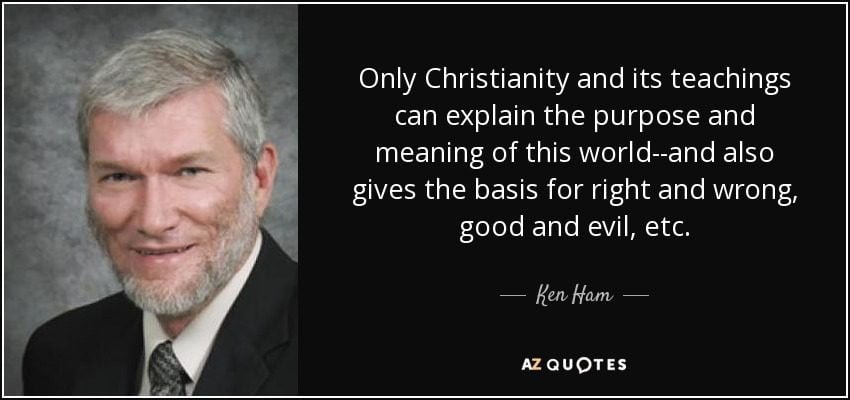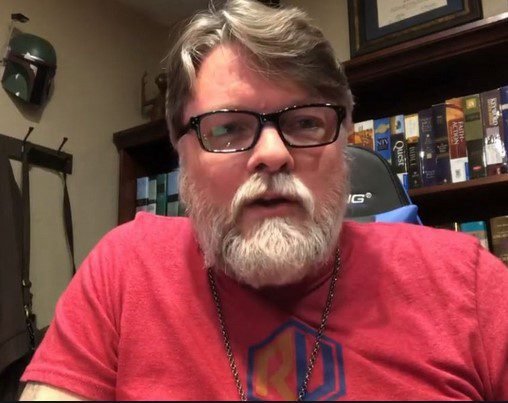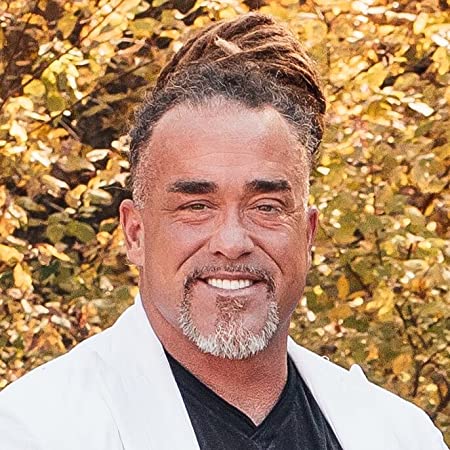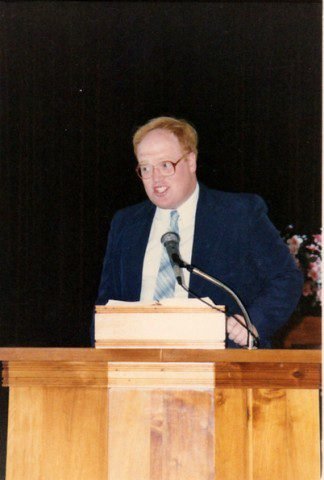In 2021, I reported that David Evans, pastor of Harmony Freewill Baptist Church in Ada, Oklahoma, was allegedly murdered by his wife, Kristie, and her lover (and threesome partner), Kahlil Square.
The Oklahoma State Bureau of Investigation on Friday said Kristie Dawnell Evans, 47, had been arrested and charged with first-degree murder after confessing her role in her husband’s murder. Her lover, Kahlil Deamie Square, 26, was also arrested on Thursday on the same charge.
Authorities say that Kristie Evans asked Square to kill her husband in a sinister plot the two hatched while the pastor was away in Mexico. According to an affidavit, obtained by The Daily Beast, the mother-of-three later told police her husband “was verbally abusive and controlling of her” and “called her names like ‘slut, fat, ugly, and whore.’”
“Kristie gave David’s gun and a box of bullets to Kahlil,” the affidavit says, based on interviews Evans had with investigators. “Kristie and Kahlil agreed upon an approximate time Kahlil would come to the Evans’ residence to kill David. Kristie left the backdoor unlocked so Kahlil could make entry to the resident.”
In a bizarre twist, the pastor’s wife told investigators that she and Square “had a sexual relationship that also included David at one point as well.”
“Kristie and David first met Kahlil months ago at a Super 8 Motel,” the affidavit states. The trio had sex at the Super 8 Motel on more than one occasion. One time, “Kristie secretly dropped her phone number on the floor for Kahlil. Kristine continued to communicate by phone daily with Kahlil without David’s knowledge,” the affidavit continues.
Evans admitted that Square stayed over for three nights while her husband was in Mexico, too. She told Square that her husband was verbally abusive, that he mistreated her, and that “it would be nice to have more freedom.” “Kahlil simply responded with, ‘damn,’” the affidavit says.
Then, at around 1 a.m. on March 22, Evans called 911 to report that “someone had shot her husband” inside their home in Ada, about an hour outside of Oklahoma City. When officers arrived, David Evans was “lying in bed, bleeding from the nose and mouth” with a gunshot wound to the head. He was pronounced dead at the scene.
Evans was later found guilty of murder. Yesterday, Evans was sentenced to life in prison.
A judge Wednesday sentenced admitted murderer Kristie Evans to life in prison for the fatal shooting of her pastor husband after hearing sordid testimony about their secret swinger lifestyle.
The punishment means she will not be eligible for parole until she is in her mid-80s. She is now 49.
She showed no emotion as Pontotoc County District Judge Steven Kessinger announced his decision. The judge called the killing nothing short of cold-blooded and said any remorse was newly found.
She pleaded guilty in April to first-degree murder, admitting she coaxed a lover into fatally shooting her sleeping husband early March 22, 2021, inside their home in Ada. She testified Tuesday she was immediately remorseful.
Her attorney, Joi Miskel, had asked the judge to order her to prison for only four years. The attorney said Kristie Evans had been a victim of domestic abuse throughout the 30-year marriage and a slave to her husband’s sexual wants.
“She is not a danger to society,” Miskel said.
A prosecutor had asked the judge to impose a life term without the possibility of parole. “She had options. She chose the worst one,” Assistant District Attorney Tara Portillo said.
The judge said he considered Kristie Evans’ testimony that her husband had abused her but could not discount that she had orchestrated his murder.
“As you testified,” he said, “actions have consequences.”
Her husband, David Evans, 50, was a beloved Baptist pastor. He had preached about attacks from the devil to the congregation at Harmony Church in Ada just hours before his death. The pastor, also known as Dave Evans, had just returned from a mission trip to Mexico.
He also had led a double life as a swinger, who collected porn and arranged for his wife to meet with men in Oklahoma City, Norman and Moore for threesomes, according to testimony at the two-day sentencing. The prosecutor conceded in closing remarks to the judge that the pastor was a sexual deviant and a “dark, dark individual.”
The judge noted as he imposed the sentence that Kristie Evans planned the crime, provided the murder weapon and ammunition, and allowed access to her home.
Kristie Evans testified she begged her lover, Kahlil Square, to help her get out of the marriage after enduring years of abuse. “I was desperate,” she said. “I wanted to be free from that. I knew of no other way.”
She said she left one of her husband’s guns outside the house and left the back door unlocked. She said she found Square hiding, dressed all in black, after hearing noises inside the house. She said she had to assure Square her husband was sound asleep because he was worried he was making too much noise.
….
She said she heard the shot and saw Square run out the back door. She said she found her husband, bleeding and gurgling from a shot to the forehead.
“I held his hand and told him I was sorry,” she said.
Square, 27, of Moore, also was charged with first-degree murder in the shooting. His next court date is Aug. 25. He also confessed, according to testimony at a preliminary hearing last year. The gun has never been found.
Kristie Evans insisted in her testimony that she still loves her husband, but the judge pointed out she had once described him as an obstacle to be removed.
The judge also said she showed no remorse when she wrote “pornographic” letters in jail to Square and another inmate. The judge said Kristie Evans first wrote Square only 19 days after her arrest to find out if he was OK, still her man and had everything he needed.
The letters were introduced into evidence Tuesday. In one letter to the other inmate, she wrote about her sexual prowess.
“I could wear a man out,” she wrote. “Any man would have done it for me after I got through with him.”
….
The prosecutor told the judge that Kristie Evans had her husband killed for money, a $250,000 life insurance policy. The prosecutor said the pastor and his wife had filed for bankruptcy months before, in October 2020.
The prosecutor also said Kristie Evans had manipulated her lover with sex and statements of love into putting a bullet into her husband’s brain.
“We also know that Kahlil Square wavered and that she talked to him on the phone from church and still persuaded him to carry out the murder,” Portillo said.
Kristie Evans and Square first met at the Super 8 in Moore for a threesome in January 2021, according to her testimony. She slipped him her phone number at a second threesome a week later and they began seeing each other without her husband.
Square visited her at her home over three days in March 2021 while the pastor was on his mission trip. He became a suspect because his car had been spotted at the house.
Kristie Evans claimed she didn’t leave her husband because she feared he would kill her parents, then her and then himself. She said she also needed to keep her job for the insurance to pay for medication for her kidney and thyroid issues.
She had a kidney transplant in 2013. She also has had her thyroid removed.
Her defense attorney, Miskel, said the judge will review his decision in a year and could modify it then.
“Her remorse is real and it was from the very beginning,” she told reporters. “Every time I’ve met with her, there is remorse.
“And you have to understand that she has suffered for years and years this horrific abuse. You don’t just shake that off in a matter of days, months, weeks or even years. And you have to think she still has had no kind of counseling, any kind of therapy, to work through these issues of decades of abuse.”
Asked about the sexually explicit jail letters, the defense attorneys said, “Kristie received positive feedback from her husband when she would perform sexually for him. That’s how she’d been conditioned over 30 years.”
She wrote the jail letters because of that conditioning to get a positive response, the attorney said. “She did cut it off.”










